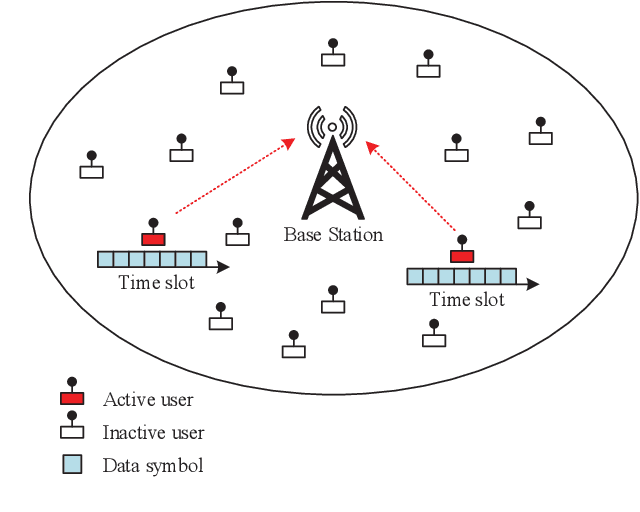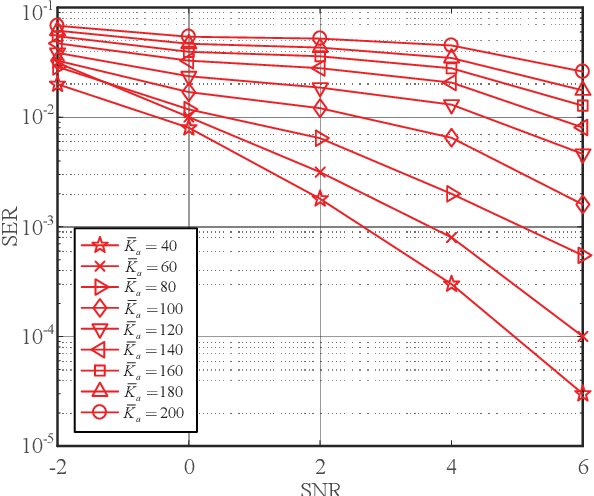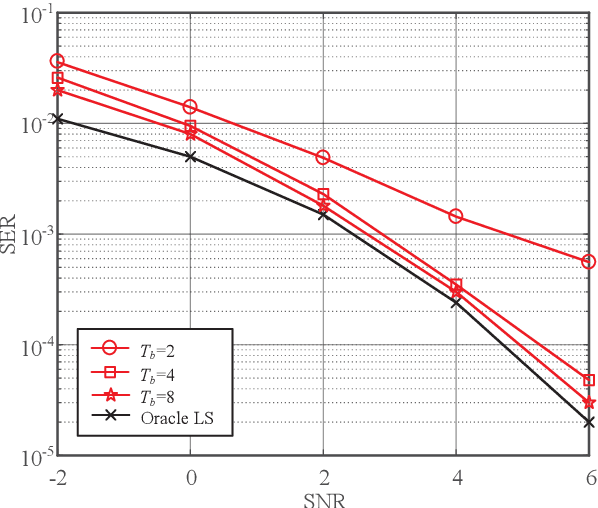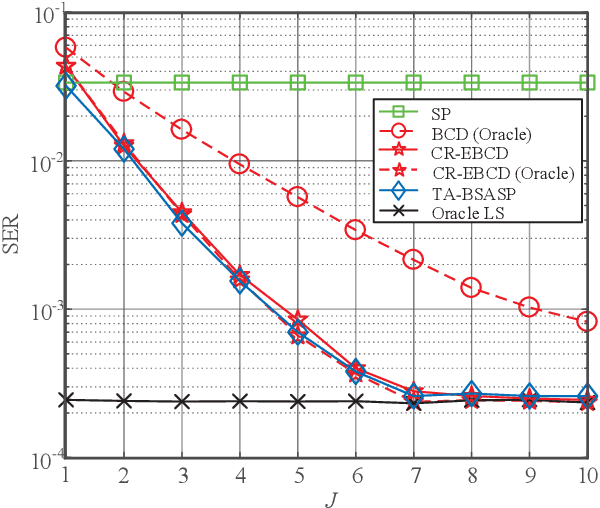Low-Complexity Block Coordinate Descend Based Multiuser Detection for Uplink Grant-Free NOMA
Paper and Code
May 23, 2022



Grant-free non-orthogonal multiple access (NOMA) scheme is considered as a promising candidate for the enabling of massive connectivity and reduced signalling overhead for Internet of Things (IoT) applications in massive machine-type communication (mMTC) networks. Exploiting the inherent nature of sporadic transmissions in the grant-free NOMA systems, compressed sensing based multiuser detection (CS-MUD) has been deemed as a powerful solution to user activity detection (UAD) and data detection (DD). In this paper, block coordinate descend (BCD) method is employed in CS-MUD to reduce the computational complexity. We propose two modified BCD based algorithms, called enhanced BCD (EBCD) and complexity reduction enhanced BCD (CR-EBCD), respectively. To be specific, by incorporating a novel candidate set pruning mechanism into the original BCD framework, our proposed EBCD algorithm achieves remarkable CS-MUD performance improvement. In addition, the proposed CR-EBCD algorithm further ameliorates the proposed EBCD by eliminating the redundant matrix multiplications during the iteration process. As a consequence, compared with the proposed EBCD algorithm, our proposed CR-EBCD algorithm enjoys two orders of magnitude complexity saving without any CS-MUD performance degradation, rendering it a viable solution for future mMTC scenarios. Extensive simulation results demonstrate the bound-approaching performance as well as ultra-low computational complexity.
 Add to Chrome
Add to Chrome Add to Firefox
Add to Firefox Add to Edge
Add to Edge